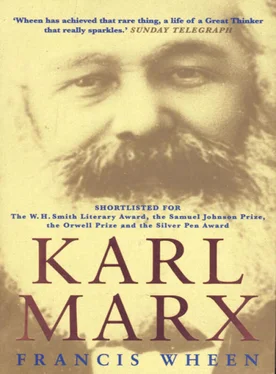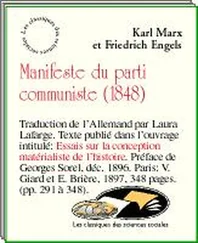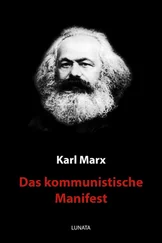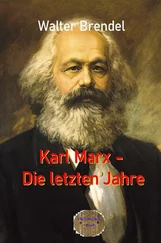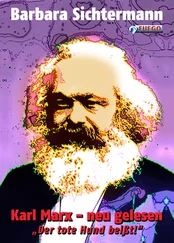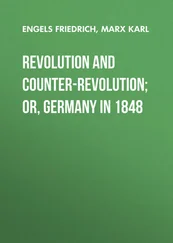1 ...6 7 8 10 11 12 ...26 In July 1841 Marx went to stay with Bruno Bauer in Bonn, where the two reprobates spent an uproarious summer shocking the local bourgeoisie – getting drunk, laughing in church, galloping through the city streets on donkeys and (rather more subversively) penning an anonymous spoof, The Last Trump of Judgement Against Hegel the Atheist and the Anti-Christ . At first glance this was a pious broadside, supposedly written by a devout and conservative Christian who wished to prove that Hegel was a revolutionary atheist; but its true intent soon became apparent, as did the identity of the authors. One Hegelian newspaper commented knowingly that every ‘ bauer ’ (the German word for ‘peasant’) would understand the real meaning. Bruno Bauer was expelled from the university, and with him went Marx’s last chance of academic preferment.
‘ In a few days I have to go to Cologne,’ Marx told the radical Hegelian philosopher Arnold Ruge in March 1842, ‘for I find the proximity of the Bonn professors intolerable. Who would want to have to talk always with intellectual skunks, with people who study only for the purpose of finding new dead ends in every corner of the world!’ A month later, he was having second thoughts: ‘ I have abandoned my plan to settle in Cologne, since life there is too noisy for me, and an abundance of good friends does not lead to better philosophy … Thus Bonn remains my residence for the time being; after all, it would be a pity if no one remained here for the holy men to get angry with.’
But the lure of Cologne was hard to resist, since the ‘noise’ of which he complained sounded remarkably like an echo of the Doctors’ Club meetings in the Hippel café – the main difference being the quality of the alcohol. ‘ How glad I am that you are happy,’ Jenny wrote to Karl in August 1841, ‘and that you drank champagne in Cologne, and that there are Hegel clubs there, and that you have been dreaming …’ Champagne seemed a more appropriate lubricant than the ale favoured in Berlin: Cologne was the wealthiest and largest city in the Rhineland, which was itself the most politically and industrially advanced province in the whole of Prussia, and the local bankers and businessmen had lately begun to agitate for a form of government more suited to a modern economy than the wheezing, ancient apparatus of absolute monarchy and bureaucratic oppression under which they laboured. As Marx himself pointed out often enough in later years, the nature of society is dictated by its forms of production; now that industrial capitalism had established itself, the talk in the bars of Cologne was that democracy, a free press and a unified Germany would have to follow. It was no surprise, then, that the city acted as a magnet for heretical thinkers and Bohemian malcontents who offered their wealth of knowledge in exchange for the tycoons’ knowledge of wealth. The child of this union was the Rheinische Zeitung , a liberal newspaper founded in the autumn of 1841 by a group of wealthy manufacturers and financiers (including the President of the Cologne Chamber of Commerce) to challenge the dreary, conservative Kölnische Zeitung .
With hindsight, it was sublimely inevitable that Marx would write for the paper and quickly install himself as its presiding genius. But although Marxism has often been caricatured as a doctrine of ‘historical inevitability’, he knew very well that individual destinies are not preordained – though he did tend to underestimate the importance of accident and coincidence in shaping a life. What if Bruno Bauer had not been driven out of academe? What if Dr Marx had found a university sinecure instead of being forced – faute de mieux – to express his restless intelligence through journalism?
Chance may have helped to decide his fate; but it was a chance he had himself been seeking. This was another of those frontier posts marking the unexplored territory beyond. Hegel had served his purpose, and since leaving Berlin Marx’s thoughts had been moving from idealism to materialism, from the abstract to the actual. ‘ Since every true philosophy is the intellectual quintessenceof its time,’ he wrote in 1842, ‘the time must come when philosophy not only internally by its content, but also externally through its form, comes into contact and interaction with the real world of its day.’ He had come to despise the nebulous and blurry arguments of those German liberals ‘ who think freedom is honoured by being placed in the starry firmamentof the imagination instead of on the solid ground of reality’. It was thanks to these ethereal dreamers that freedom in Germany had remained no more than a sentimental fantasy. His new direction would, of course, require another exhaustive and exhausting course of self-education, but that was no discouragement to such an insatiable auto-didact.
He composed his first journalistic essay in February 1842, while visiting the dying Baron von Westphalen in Trier, and sent it to Arnold Ruge in Dresden for inclusion in his new Young Hegelian journal, the Deutsche Jahrbücher . The article was a brilliant polemic against the latest censorship instructions issued by King Friedrich Wilhelm IV – and, with glorious if unintended irony, the censor promptly banned it. The Deutsche Jahrbücher itself was closed down a few months later, by order of the federal parliament.
Grumbling about the ‘sudden revival of Saxon censorship’, Marx hoped for better luck in Cologne, where several of his friends were already installed at the Rheinische Zeitung . The editor, Adolf Rutenberg, was a bibulous comrade from the Doctors’ Club (and brother-in-law to Bruno Bauer), but since he was usually sozzled the burden of producing the paper fell mostly on Moses Hess, a rich young socialist. Moses Hess later became a fierce enemy, as did almost all of Marx’s friends, but at this time his attitude to the combative youngster was reverential. He wrote to his friend Berthold Auerbach:
He is a phenomenonwho made a tremendous impression on me in spite of the strong similarity of our fields. In short you can prepare yourself to meet the greatest – perhaps the only genuine – philosopher of the current generation. When he makes a public appearance, whether in writing or in the lecture hall, he will attract the attention of all Germany … Dr Marx (that is my idol’s name) is still a very young man – about twenty-four at the most. He will give medieval religion and philosophy their coup de grâce ; he combines the deepest philosophical seriousness with the most biting wit. Imagine Rousseau, Voltaire, Holbach, Lessing, Heine and Hegel fused into one person – I say fused not juxtaposed – and you have Dr Marx.
Marx had the same effect on almost everyone he encountered at this time. Though the men in the Berlin Doctors’ Club and the Cologne Circle were eight or ten years older than him, most treated him as their senior. When Friedrich Engels arrived in Berlin to do his military service, a few months after Marx’s departure, he found that the young Rhinelander was already a legend. A poem written by Engels in 1842 includes a vivid description of his future collaborator – whom he hadn’t yet met – based entirely on the breathless reminiscences of fellow intellectuals:
Who runs up next with wild impetuosity?
A swarthy chap of Trier, a marked monstrosity.
He neither hops nor skips, but moves in leaps and bounds,
Raving aloud. As if to seize and then pull down
To Earth the spacious tent of Heaven up on high,
He opens wide his arms and reaches for the sky.
He shakes his wicked fist, raves with a frantic air,
As if ten thousand devils had him by the hair.
He was indeed swarthy (hence his lifelong nickname, ‘Moor’) and the effect was accentuated by thick black hair which seemed to sprout from almost every pore on his cheeks, arms, ears and nose.
Читать дальше
